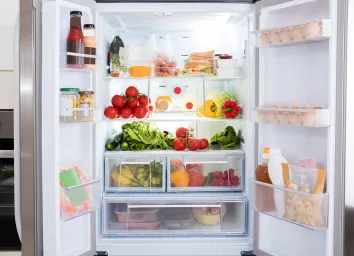7 Ways Your Fridge Is Making You Sick
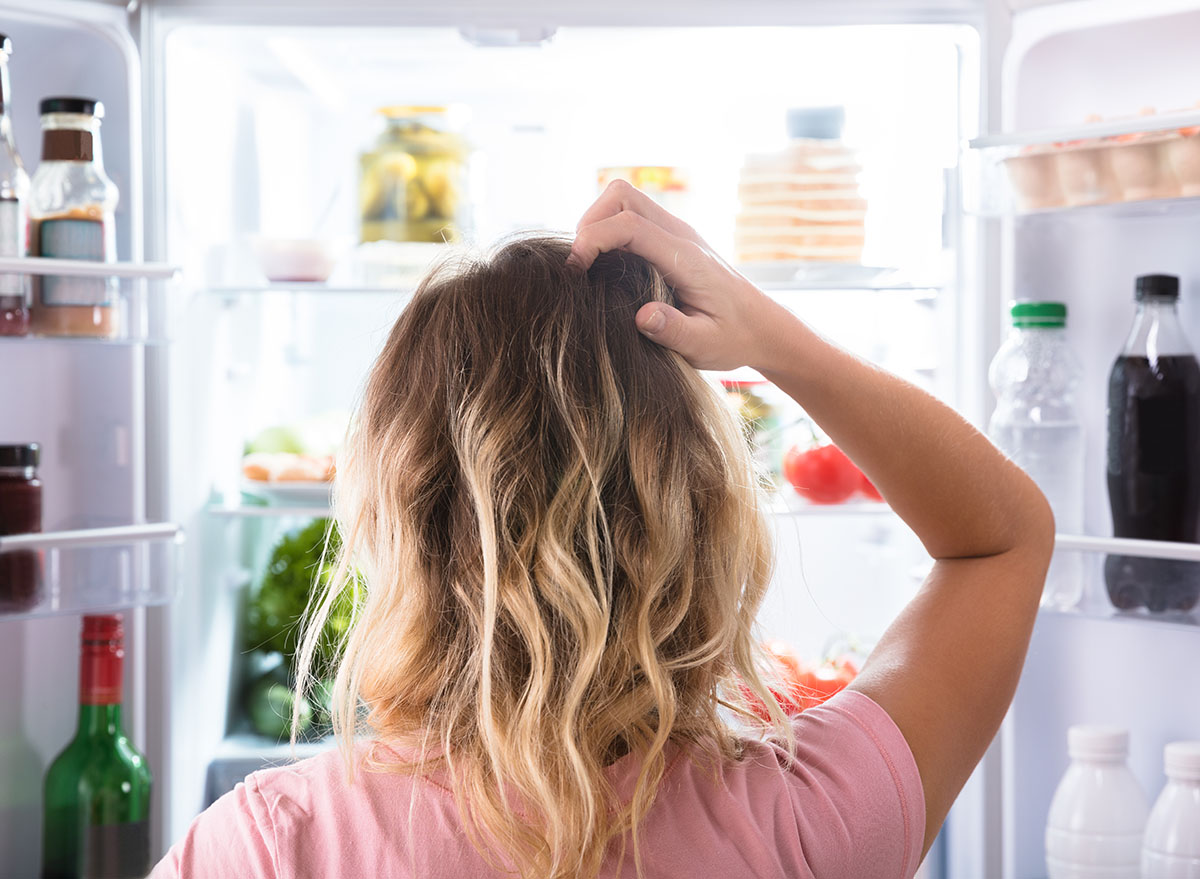
While it’s easy to blame the fridge for making us sick, let’s be honest here: The fridge is not the problem. The real problem is not knowing how to properly use and take care of our fridge, as well as not properly storing food. However, by eradicating these common mistakes, you can avoid any possible ways your fridge is making you sick. So if you find yourself cooking a lot at home and using your fridge more and more, here are a few fridge mistakes to avoid that can save you from foodborne illness.
You’re not cleaning up spills immediately.
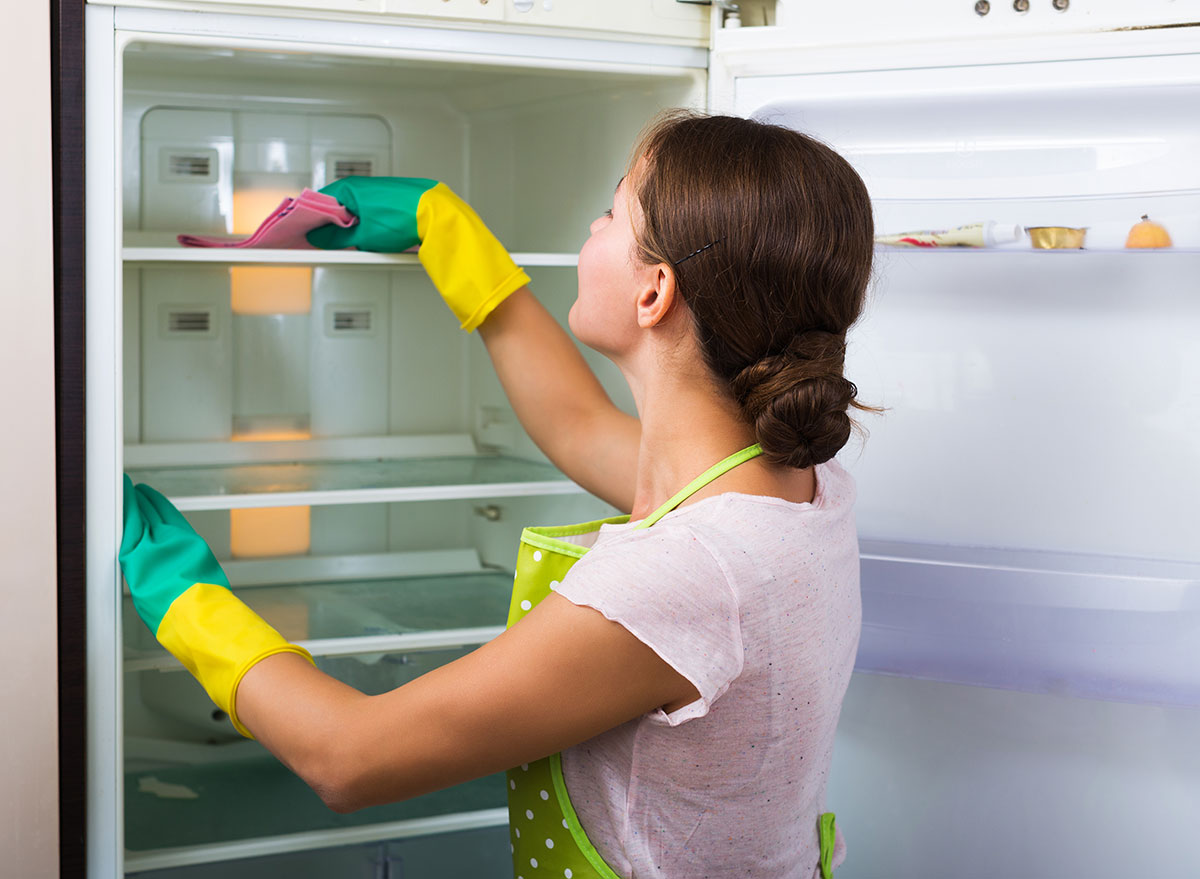
Spills happen, but how often are you cleaning them in your fridge? If you’re avoiding cleaning that sticky mess in the back of your refrigerator, take this as your warning: those spills could cause cross-contamination with your food and cause serious illness. According to experts, it’s important to clean those spills immediately and to clean out your fridge at least every two weeks with a mild bleach solution and water.
You don’t understand expiration dates.
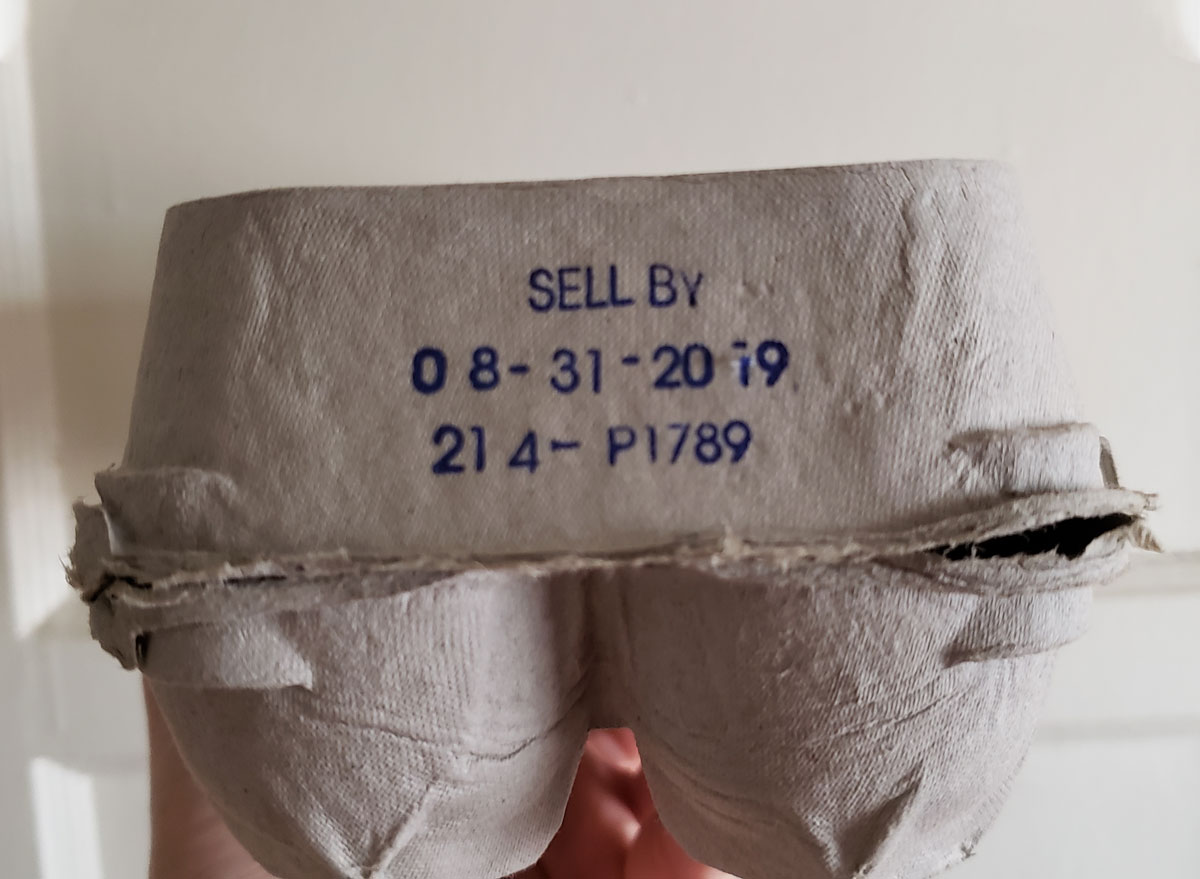
Don’t have a clue what the difference between “use by,” “sell by,” and “best by” are? By understanding the differences in these dates, you can save yourself a lot of confusion as well as the chance of getting sick from your food. Here’s an easy guide to remember.
- Eat anything with “use by” before the expiration date, otherwise throw it out.
- Eat anything with “sell by” within 5 days of the sell-by date.
- The “best by” date means that the item has reached its best quality by that date, but it has not expired. These are still okay to consume.
You’re overpacking the fridge.
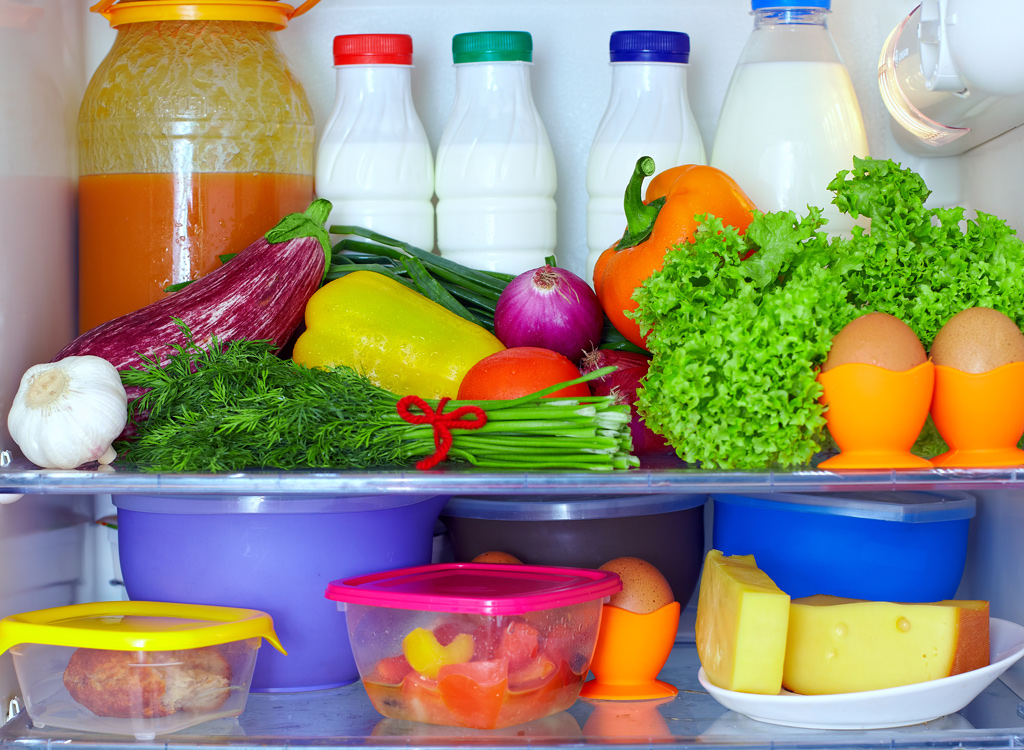
While stocking up on lots of food does sound convenient, having an overstocked fridge can actually affect your health. If the fridge is too packed, the cold won’t be able to fully spread throughout the fridge, leaving some of those foods at warmer temperatures than they should actually sit at. If they are sitting at warmer temperatures, this could obviously breed bacteria and cause food poisoning.
You hold the door open for too long.
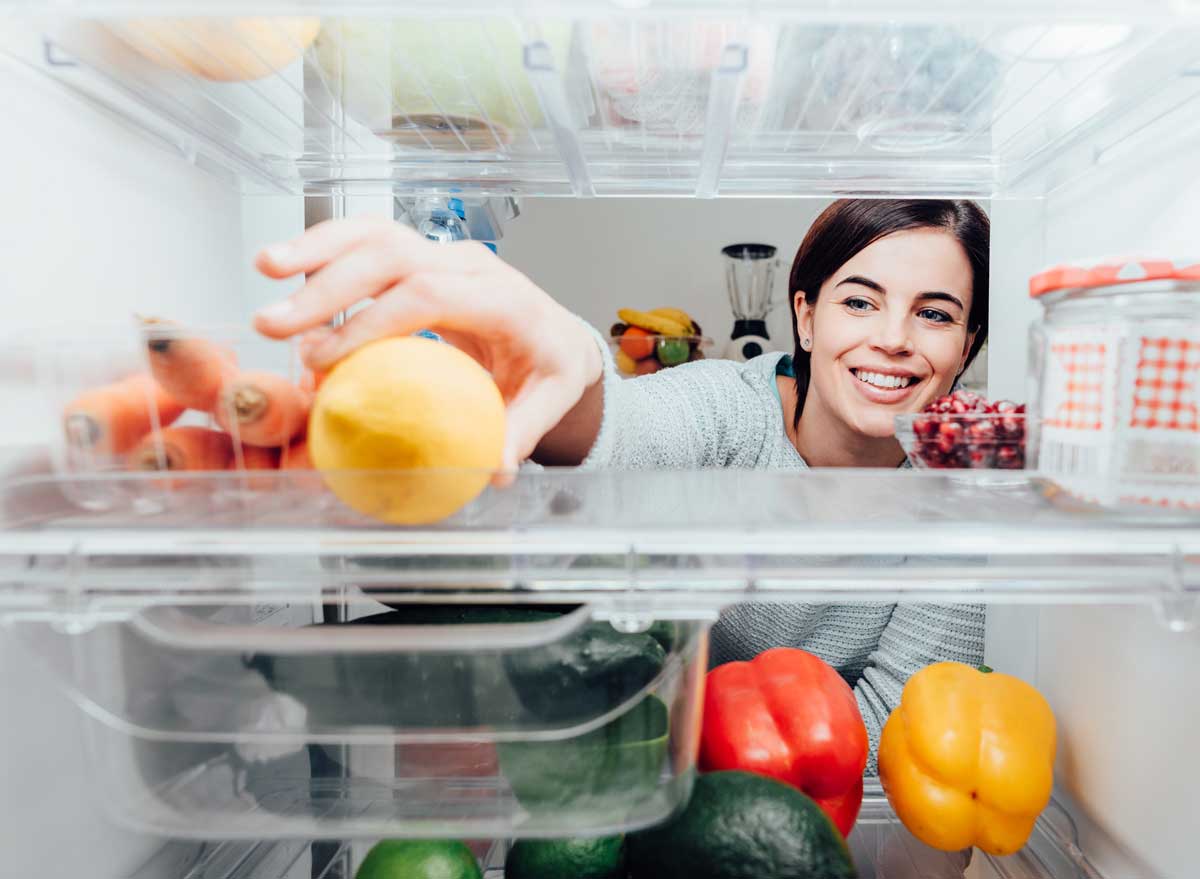
It’s tempting to open up the fridge door and stand there while you think up something to eat, but if you leave it open for too long it could cause the items in the fridge to reach an unhealthy temperature. While the ideal situation is to open and close the fridge door quickly, a good rule of thumb is to never go above two minutes with the fridge door open.
You’re not storing your foods properly.
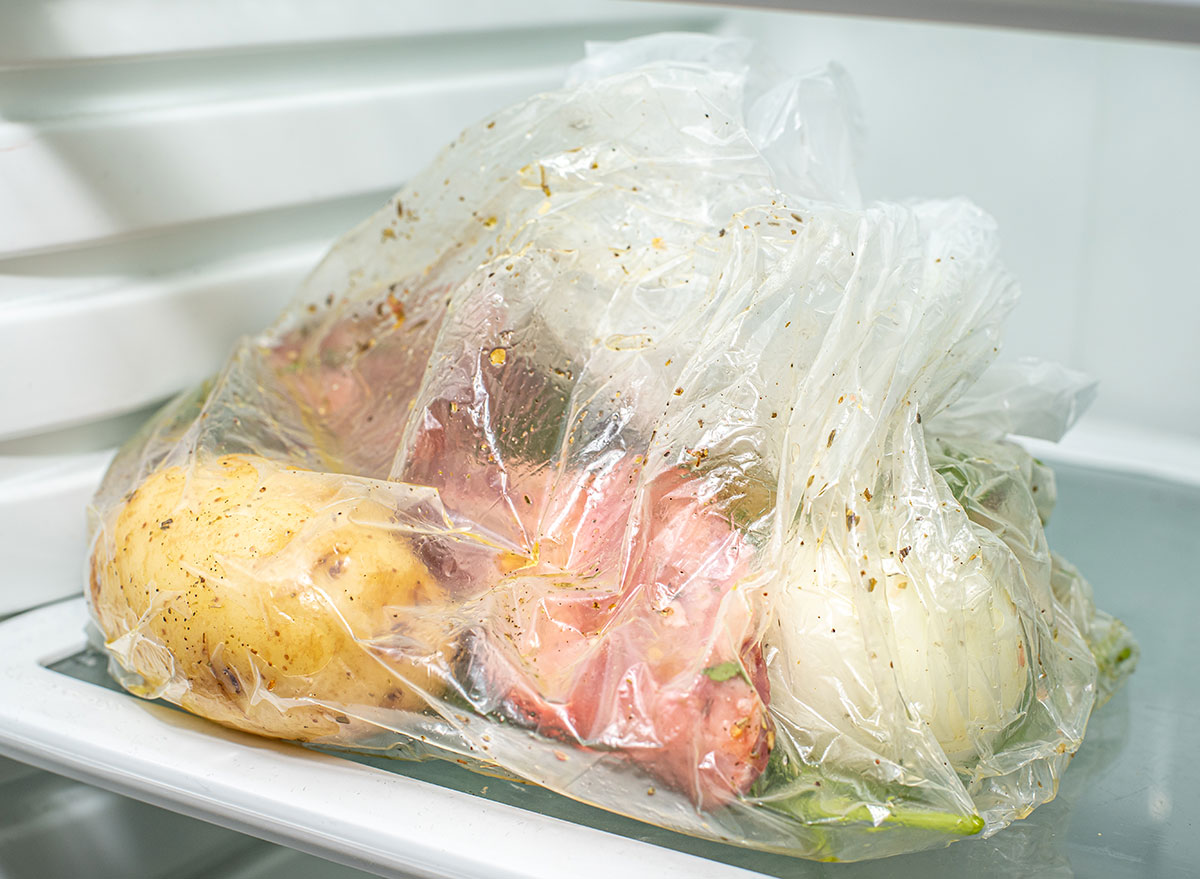
While it may seem like placing your foods anywhere in the fridge doesn’t really matter, it’s actually far from the truth. You should be placing certain foods in certain areas of the fridge not only to regulate the temperature of those items, but also to avoid any cross-contamination of bacteria—especially for any raw meat you may have. You want to make sure that all raw meat is on the bottom shelf to avoid any bacteria spilling over to any cooked foods you may have in the fridge. Store your salad greens, vegetables, herbs, and fruits in the crisper drawers below. As for those “ready to eat” foods—like leftovers, dairy products, and packaged foods—those can go on the top two shelves of your fridge.
You’re not eating your food fast enough.
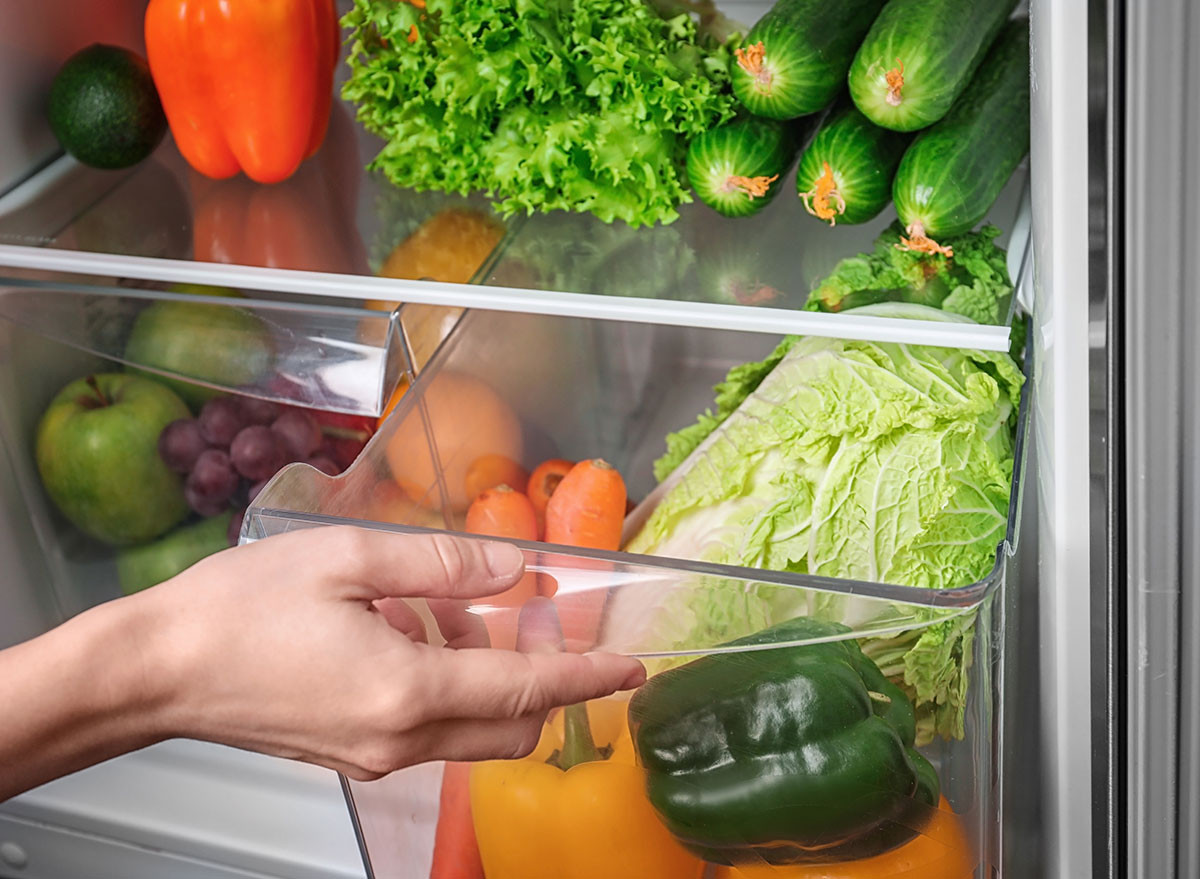
If you’re cooking for yourself or simply for two, you probably find yourself with more leftovers than usual. The key is to eat those leftovers right away. Otherwise, you risk food going bad (which could make you sick)—and cause you to waste your food. Instead, plan to eat the meals you cook immediately. Try to consume them within three or four days of cooking the dish. If you can’t eat it fast enough, wrap it up and place portions in the freezer that you can heat up later. This will give you at least three or four months.
You’re not keeping the fridge at the right temperature.
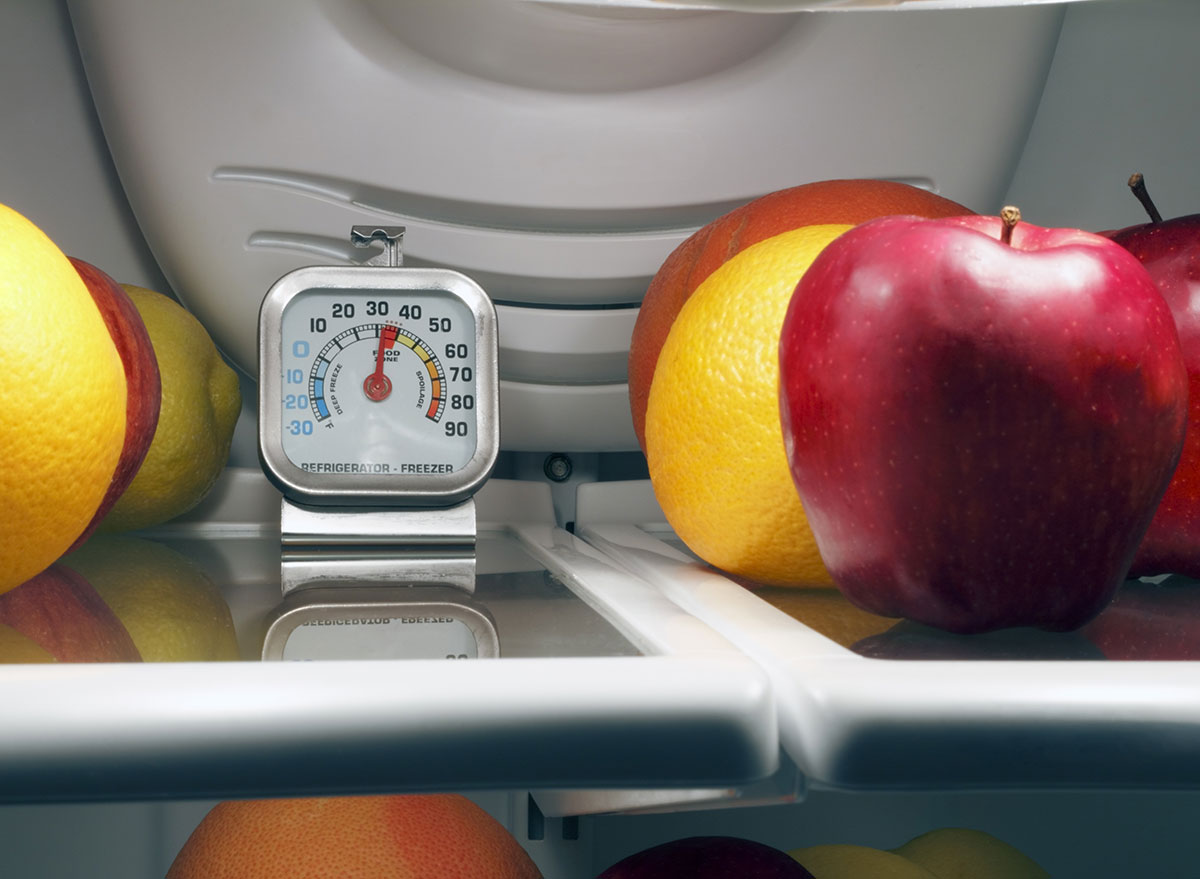
And lastly, make sure your fridge is properly at 40 degrees! This will ensure that your food stays properly cold and won’t provoke any foodborne diseases to inhabit. Make sure your freezer is also at the proper temperature—zero degrees—so you can avoid the same mistakes.


